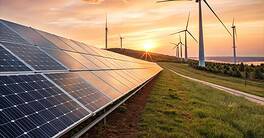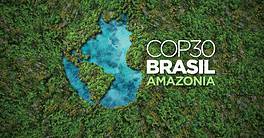Climate finance is one of the hot topics of this year’s COP28 conference in Dubai. On Monday, the United Arab Emirates’ banking sector took center stage when it pledged to mobilize over $270 billion in green financing by 2030.
“Banks in the region have a pivotal role to play to support the transition into a greener economy,” says Ahmed Abdelaal, group CEO of Mashreq Bank who pledged $30 billion.
The money will go towards “very concrete and impact-driven projects,” insists Shargiil Bashir, EVP and chief sustainability officer at First Abu Dhabi (FAB), the largest bank in the UAE that participated the pledge.
The structure of the pledge, how it will be deployed, overseen and regulated—whether each bank will follow its own guidelines or whether they will act under the supervision of the UAE central bank—remains to be seen.
“We expect more details in the coming months but basically all the big banks have already been working on sustainable finance frameworks,” notes Bashir. Two years ago, FAB committed to facilitate $75 billion in sustainable finance and has already delivered $27 billion in energy projects, wastewater infrastructure and green buildings. On December 5, the bank increased that commitment to $135 billion.
This $270 billion pledge is the latest announcement in a long series of green finance commitments. Since the start of the COP28, virtually everything that can be labeled “green” received funding promises.
After four days of negotiations, total pledges from public and private donors amounted to $57 billion including $30 billion for a new UAE-led private sector fund, $9 billion for climate-related projects from the World Bank and $725 million to the Loss and Damage fund—a much-awaited mechanism announced at last year’s COP27 to help developing countries cope with environmental hazards resulting from global warming.
Other pledges include $3.5 billion for the Green Climate Fund, $2.7 billion for health, $2.6 billion for food systems, $2,6 billion to “protect nature,” $2.5 billion for renewable energies, $1,2 billion for relief recovery and peace, another $1.2 billion to reduce methane emissions, $568 million to encourage investment in clean energy manufacturing and $467 million for urban climate action.
Similar to the UAE banks’ pledge, in most cases exact funding targets and mechanisms are unclear. A big concern for developing countries is how much of the financing will be grants and how much will be loans that will increase their debt burden.
On Monday, multilateral financial institutions including the World Bank, the Inter-American Development bank, the African Development Bank, the European Investment Bank agreed to increase funding efforts and adapt existing frameworks to the new realities of climate change by pausing debt service in case a country faces an environmental disaster.
No matter how overwhelming these pledges might seem, the total amounts needed to truly tackle global warming are much higher. According to industry experts, inaction on climate change could cost the global economy over $170 trillion by 2070.




